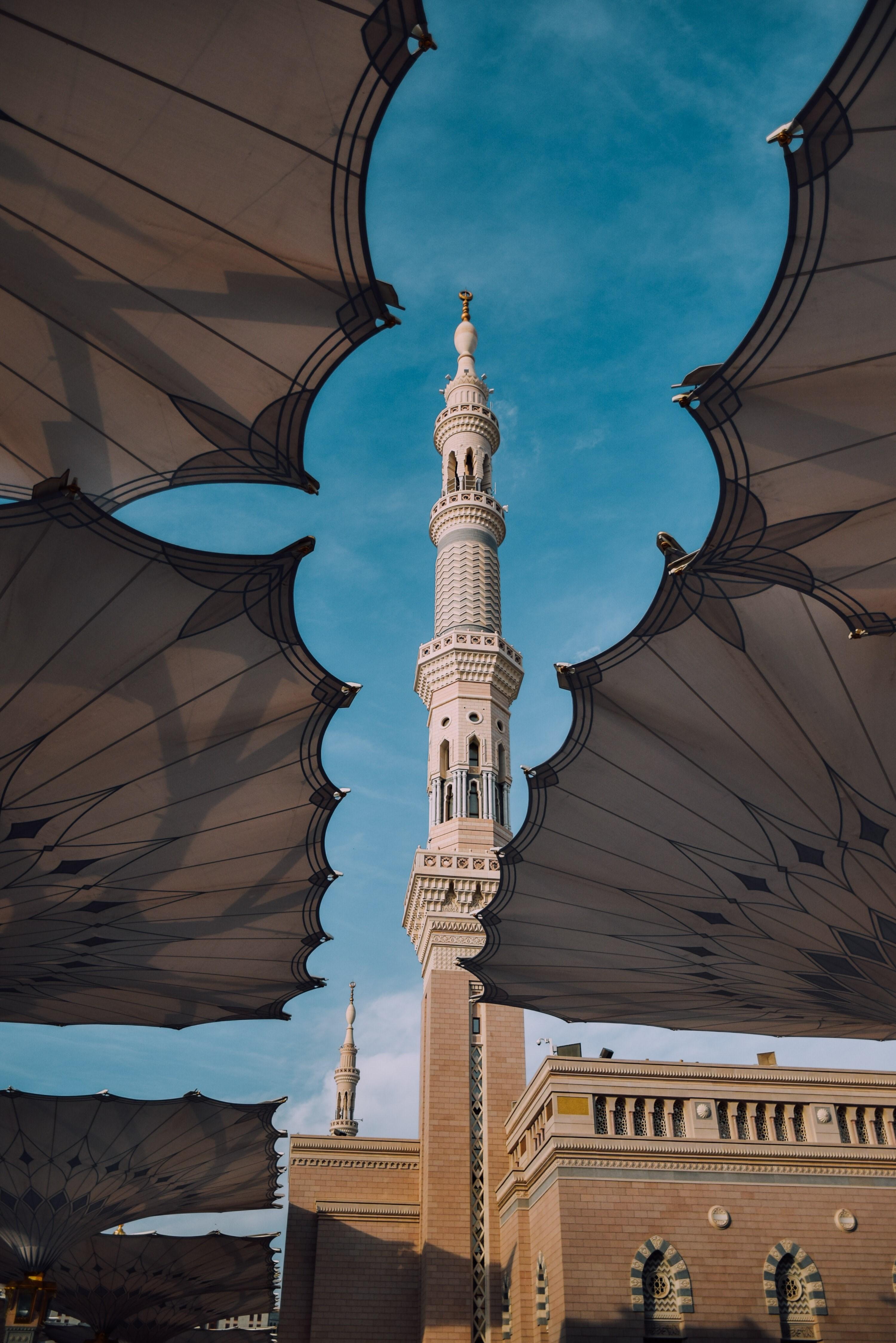


his calendar year has finished yet again and due to Allah’s mercy, we are now in the new year. Some might think of it as a loss of one more year but what if it’s not a loss, but instead a tool for us to spiritually grow. What if we celebrate our sincere efforts, heartfelt accomplishments and learn from our past mistakes. Let us focus on what we can do for the greater good, work on our personal, emotional and spiritual growth, and be thankful to Allah.
Allah says in Surah Asr.
Except for those who have believed and done righteous deeds and recommended each other to truth and recommended each other to patience. (103:3)
This last issue of this year 2022 is also the first issue of next year. We also like to celebrate this year’s small accomplishments with you. We like to send our gratitude to all of the readers. We do extend our heartful thanks to our
helpers, editors, designers, proofreaders and anyone else who helped this magazine be brought to life. We pray that we would be able to learn from our mistakes and remain focused on positive goals, however small they may be. Furthermore, we will try our best to bring meaningful, thoughtful, and critical thinking pieces for you in the future In’Sha’Allah.
In this issue we have discussed religious abuse, which is the 2nd part of the ‘Character Starts At Home’ series. We have also discussed an author’s journey to be a novelist in “I Dare To Dream. Furthermore, we have discussed the importance of instilling and enhancing Ikhlaq (Character) in’ Iklaq As A Foundation’, while a list of people whom Allah loves is written in ‘Whom Allah Loves’. Next, ‘Ramadan Year Round’ is a thought provoking reminder for everyone including kids.
Please read, share and like this work, and feel free to send us a comment or two. Please also keep us in your prayers. May Allah (S) give you success in both worlds, Ameen!

Character starts at home is a seven parts series started to address common abuses around our society . Some of it is slowly passed down the generations silently, while some of them are widely used as Islamic way of life. This series tends to address the difference between what Allah has permitted and what is out of bound from the get go. The second of this series addresses Religious Abuse.

Religious Abuse is the misuse or manipulation of religious texts or doctrine to achieve an end that is incompatible with the true nature of the Deen. Below we discuss some examples of religious abuse, which is rampant in our communities. In each of these examples, we'll discuss how religion is used, not to spread good or to bring us closer to the ultimate and unique divine, but to control, gain an advantage, or conform to a standard that is not Islam.
Religiousabuseathome:
ent individuals. For example:
a. Father can shake hands with women, but daughter must wear hijab outside (but not when potential suitors come to visit)
b. Son is allowed to be out alone late at night, no questions asked (don't know where, with who, doing what). Daughter can't meet up with her female friends whose names you know at 5:00 for dinner at a known dinner stop.
c. Father can be rude and disrespectful to mother, but son cannot speak up to father, even to warn him about haram behav-
1. Applying different standards of religious acceptability to differ-
iour as Ibrahim AS warned his father.
d. Son can tell the mother what to do. But the older daughter must obey younger brother, and deal with his disrespect and physical abuse. But the daughter may not even speak or object.
e. Telling daughters that if they lose their virginity, even if they are raped, they are tainted. Finding the most pure wife for your son whom you know has a girlfriend, despite the Quran explicitly prohibiting marriage between chaste women and unchaste men in two different verses. Claiming culture to be religion.
Forexample:
a. Telling your daughter she has to marry within the culture, and forcing her to marry (through threats or emotional manipulation) despiteher unwillingness. b. Force her to be happy and content with your choice for her in marriage despite knowing that she is suffering, and taking no action to provideher support.
Changing Islam to fit a narrative ofcontrol.Forexample: a. Claiming that a wife must seek approval from her husband to visither parents. b. Claiming that a wife must live with and obey her in-laws even if it isn't working out c. As a wife, claiming that you can't visit or live with in-laws because they are non-mahram d. Practising secret second mar-
riages instead of facing and dealing with the problems in the first marriagehead on.
Being selective about which aspects of religion to apply. For example:
a. Reminding wives that they must obey their husbands, and that hitting your spouse is allowed. But omitting all of the very many verses and hadith that talk about the importance of good treatment of the wife
b. Asserting your right to marry multiple women and divorce at will. Omitting the fact that the Qur'an asks men to give a parting giftto wives they divorce.
c. Going to Jummah prayers, and coming home only to share the
parts the imam mentioned that have to do with the woman obeying the husband, and completely omitting what the imam mentioned about the obligations on men to be chartered towards their wives
d. A husband demanding his right to have sex at any time, but taking no care to pleasure, satisfy, or make his wife happy in any way as is his obligation as documented in many ahadith.
Religious abuse extends beyond the home and in our societies in manyways.Forexample:
a. Misguided Imams may meet with single women on their own, and convince them that secret second marriages are permissible (there is not such thing as a secret marriage in Islam), or
officiate secret marriages, or marriages without a Wali (Guardian) or a valid reason why all potential Walis were invalidated.
b. Stifling civic debate, and allowing leaders to rule as tyrants pulling the "unity is better" card, despite the explicit guidance of the Prophet to stand against oppressors, and the guidance of the Qur'an to stand for justice even if it be againstyourselves.
c. Imams in marriage counselling telling women to be patient, despite clear signs of financial or other forms of abuse, while not telling the man anything about how his behaviour is wrong, and he should stop if he fears Allah. (In these cases, one wonders if the Imam himself fears Allah or
the society of men more)
d. Telling women that they should stay at home, home school their kids, and not get a job (despite many of the Prophet’s wives having some sort of income, trade, or function in the social sphere such as nursing, midwifery, or teaching men), while not providing the woman with a stipend to spend as she wishes (as was the tradition at the time of the Prophet). Then also claiming that the same woman has no right to financial support or assistance from the ex-husband whom she served, and whose children she served, for the past 10+ years, for which she was never compensated in the slightest.
e. Aunty X telling mom that she
needs to pray tahajjud and homeschool her kids, and that if she prays her prayers too quickly, her prayer doesn’t count. Aunty X, while having homeschooled her kids and regularly praying tahajjud, does not maintain good relationships with her family and in-laws, hits her kids, and is dishonest in speech when interacting with people to trade orwhen filing taxes.
indicators:
1. Deeds are by intentions
2. Do for others what you wish for yourself
3. Unrealistic and above the bar standards
4. Is the advice really Islam?
I’ve provided quite a few examples here, but this is also because religious abuse is just so common and widespread in oursociety.
So how does one tell the difference between religious abuse and religious guidance? There are a few key
In most of the examples above, I can call out the true intention of the abuser as something other than pleasing Allah SWT. For example, the intention of a fatherthat has different rules for daughters and sons is usually not to create a household of imaan. Instead, the intention is often to “protect the family honour” - as in, if a son sleeps around, no one will find out, but if a daughter sleeps around, she’ll get pregnant and we will be looked down upon in the
community. Another example is the husband that says a wife must seek permission before leaving the house. At face value, it may seem he is just trying to implement his (misguided) version of Islam. But in actuality, men who try to emphasise these rules are often insecure, and use these rules to control their wives to make themselves feel more secure and in control. Again, the true intention is not piety. A God-conscious husband would introspect, recognize that his wife has needs, and strive to fulfil them, as is the obligation according to the Qur’an and sunnah, which includes the wife’s need to socialise, spend time in the sun, and enjoy the fresh air.
The Aunty X example above is one where, the intentions of Aunty X may be pure - she’s trying to bring mom closer to her version of Islam. But there are a few serious flaws to her approach that make this religious abuse: a. Aunty X is focusing on how others don’t meet her level of excellence on things she does well. This energy is then diverted away from improving her own flaws. Depending on how severe this tendency is, this may be a sign of self-righteousness, Riya (showing off), and hypocrisy in AuntyX. b. Aunty X sets standards for women that are well above and beyond the Qur’an and sunnah. While she is advocating for good, she is advocating for *her brand*
of good. While well intentioned, this created an insular and single minded society, whereas Allah SWT has created many doors to Jannah, and encouraged us to go through whichever door pleases us. c.Aunty X makes things into Islam which really aren’t. Islam is a very open and liberal religion. It does have a few very strict regulations, but the vast majority of things are left up to individuals to decide, and use their conscience to pick what they feel is closer to Allah. Homeschooling may be something some people feel brings their family closer to Allah. But it is by no means the only way to raise a good family, and is not
legislated in Islam in any way. Likewise, praying Tahajjud is encouraged as an optional nawafil. But if mom wants to help the neighbours instead, that is also an optional nawafil, and who is to say which one is more meritorious.
So how does one prevent themselves from being a religious abuser?
1. Focus on improving yourself first and foremost
2. When interacting with others, double check your intentions. Are you bringing up religion out of sincere desire to bring yourself, your family, or community closer to Allah, or are you doing it as a means of exercising control, demonstrating superiority, or gaining community ac-
ceptance?
3. Is your advice really Islam, or is it a cultural principal, fad, or your personal inclination? There is nothing wrong with sharing ideas. Just make sure you make clear what is Islam and what is your opinion or belief, and give people space to make choices different from your advice without feeling judged.
4. Is the bar you are setting for people the bar that Rasullulah set for his Ummah, or are you setting the bar higher (often done for women), or the bar lower (often done for men). In either case, you are inadvertently either making Islam harder or more narrow minded, or making haram halal in order to appease
people.
5. Instead of telling someone what to do, can you instead help them with what they are struggling with. For example, by offering to babysit their children, or taking an hour out of your day to talk to your daughter about her life, thoughts and concerns.
It can be a fine line to walk, but with some introspection, and wisdom, we can all be lights in the community encouraging and supporting each other closer to the straight path, and end the use of religion as a means of abuse of people.

Dreams are a common part of a human life. Many of us dream to do something, be someone, and we strive for it. We are told from an early age to dream big and try hard for it. Some of us can follow what we dream of, while most of us don’t. Not all things we dream of, end up as nice and valuable as we might imagine, but still, it doesn’t stop us from dreaming.

I have few dreams of my own too.
One of them is to author books, several of them. I dream that my books reach millions of people and stay here in this world for an exceptionally long time, even after I am gone.
Wishful thinking is it…. no brainer.
Thinking about becoming a novelist and writing are two different sports. One requires daydreaming while the other is challenging work. Whoosh! I have been at the
first stage of this for as long as I can remember. No wonder.
It’s not that I don’t try. I do read about authors, and I found out there are a lot of writers who get inspired by events, occasions or people and put their work on the paper, do all due diligence and become successful.
I have also read about people who dreamt about books in their sleep. What if I am that lucky. I was waiting for a dream to come to me in my sleep. Which I can conveniently download onto paper, no writer’s block here. How convenient, I think.
One day when I got my wish. The story of that dream was far different from what I had envisioned in my naivety. It was a heart wrenching story, beyond my imagination. Every time I think about it, my heart drops. I thought a lot
about whether to put it on paper and put it out in the world or not. What benefit would it bring to the world? And why did I see what I saw? I also ponder, what if this story is real and someone out there is suffering, would it help them or increase the pain they are in?
Maybe it is the real life of someone. That would be excruciating to see their life events open to the public, laying bare. I stood back, held my pen, and I am still perplexed.
On the other hand, if I may draft a novel sometime, (not what I dreamt of, but what I came up with in the daytime) what makes me think that the subject of the storyline has never been touched and it’s unique in it’s all entity. .
Would I be able to write something exclusive enough to get traction when every day thousands of write ups get rejected.
I want to write distinctive, impactful, intriguing and long-lasting pieces, which people read over and over again without regretting. I desire that words of my work shine a guiding light to the readers on which they can comfortably walk. To give them a guiding shiny star. It is wishful thinking on my side. I am a flawed, insignificant, and a weak human being. Wishing to create a guiding star is not a human job, it's God’s. I can only create things which are only comparable to my limited resources and capabilities. I can only produce things which will be limited and flawed. Even if, one day I may be able to write; it would not be a guiding star. I am sure of it. Which may be short lived. Which will be flawed and maybe full of contradictions and mistakes. But I hope, if I would one day, in its limited means, it would still be impactful, helpful and
purposeful. It would give people something to hold onto. Help to inspire them or get advice from it. Maybe it will be able to put a smile on their faces or help uplift their hearts and brighten their eyes. Maybe one day. Until then I will keep dreaming.

Anas ibn Malik reported: The Prophet, peace and blessings be upon him, said, “Whoever has three traits within himself will find the sweetness of faith: one who loves Allah and His Messenger more than anything else, one who loves a servant only for the sake of Allah, and one who hates to turn back to unbelief after Allah has saved him, just as he hates to be thrown into the fire.” (Bukhari and Muslim)
Many of us grow up learning about the 5 pillars of Islam as the foundation of our Deen. Our religious upbringing focuses on

learning the practices of our faith, learning Arabic, and learning Fiqh. Yet what many of us don't get taught growing up the the importance of ikhlaq and ikhlas in our Deen. Our upbringing with regards to interpersonal relationships often focuses on "what would other people think?". I would argue, instead that we should raise our children to ask "What would Rasulullah SAWthink and do?" Rasulullah SAW is called a mercy to mankind, not only because he carried a most beautiful message, but also because he taught us how to live that message in the best of ways. When you read the book of ahadith, you read exam-
ple after example of the beauty and mercy of Rasulullah SAW's character and his treatment of people. It is a character we should strive to embody in every word and action of our practice of not just our Deen, but our business and work dealings, and our personal/familylives. Are we living up to the character of Rasulullah SAW? Below are a few examples that might serve as indicators of how well we are doing with regards to our Ikhlaq.
1. If your wife got angry and threw down and broke a plate that someone else had brought as a gift of food, how would you react? It was narrated from Umm Salamah that she brought some food
in a dish of hers to the Messenger of Allah and his Companions, then 'Aishah came, wrapped up in a garment, with a stone pestle and broke the dish. The Prophet gathered the broken pieces of the dish and said: "Eat; your mother got jealous," twice. Then the Messenger of Allah took the dish of 'Aishah and sent it to Umm Salamah and he gave the dish of Umm Salamah to 'Aishah. (An-Nasa'i)
Notice how Rasulullah SAW did not get angry, raise his voice, raise his hand, or say something instigating or insulting. Instead, he remained calm, and urged everyone to remain calm and continue eating, recognizing where Ayesha RA's emotions
came from.
2. Do you show affection to our children and loved ones? A man saw the Messenger of Allah, upon whom be peace, kiss his grandson Hasan. The man said, "I have ten children and I do not kiss any of them." The Prophet, upon whom be peace, said, "Verily whoever does not show mercy will not be shown mercy." (At-Tirmidhi)
3. Do we help out at home after a busy day's work? "What did the Prophet, peace and blessings be upon him, do in his house?" Aisha said, "The Prophet would do chores for his family and he would go out when it was time for prayer."
Source:Sahih-al-Bukhārī 676
Grade: Sahih (authentic) according to (Al-Bukhari)
4. How would you treat a man who physically harassed you? A Bedouin once pulled Nabi (sallallahu ‘alayhi wa sallam) roughly by his coat, leaving traces on his neck and said to him: “Load these two camels of mine, for you do not give me anything from your property or from your father’s property!”
5. Rasulullah (sallallahu ‘alayhi wa sallam) gently requested the Bedouin to release him. Nabi (sallallahu ‘alayhi wa sallam) smiled and ordered someone to give him a camel load of barley and a camel load of dates. (Bukhari)
6. Would you be open to raising a relative or orphan in your own home as our own? Rasulullah
SAW raised both Ali (his cousin) and Zayd (a freed slave) in his ownhome.
7. How do you deal with domestic violence? This is Rasulullah SAW's example: https://www.soundvision.com/ article/how-the-prophetmuhammad-fought-domesticviolence Whether it is how he treated is wives, the guidance he gave to people and how he delivered it, the standards he held his close companions to, to how he treated women, and children. Every aspect of his interactions with people showed the amount of effort and care he put into acting with Ehsaan (excellence), kindness, and empathy, and yet still with justice. Abdullah ibn Amr reported: The Prophet, peace and blessings be upon
him, was never obscene or immoral.
The Prophet would say, “Verily, among the best of you are those with the best character.”
Source: Ṣaḥīḥ al-Bukhārī 3559, Ṣaḥīḥ Muslim 2321
I'd like you to consider this: what would our family, our community, our countries, and the Muslim world look like if we whole heartedly, and with conviction, adopted the practices of Ikhlaq of the Prophet SAW as strongly as we hold fast to Fiqh and religious practice? What would our Ummah today look like? What would you look like? What would your familylooklike? It all starts with you. Do you have the patience to exhibit greater character? Do you have the Tawakul in Allah and perseverance to maintain this higher
level of character? Can you soften your speech while still being honest, just and fair? Can you treat others with love and mercy while still holding them and yourself to a higher standard? Can we nowlive bythe most excellent example, and be role models for our children and the generation to come?
Abu Huraira reported: The Messenger of Allah, peace and blessings be upon him, said, “Verily, you cannot enrich all of the people with your wealth, but rather you enrich them with your cheerful faces and good character.”
Source: Shu’ab al-Imān 7567

 Photo by Yasmine Arfaoui on Unsplash
By: Sshaista Khurshid, Calgary Alberta
Photo by Yasmine Arfaoui on Unsplash
By: Sshaista Khurshid, Calgary Alberta


